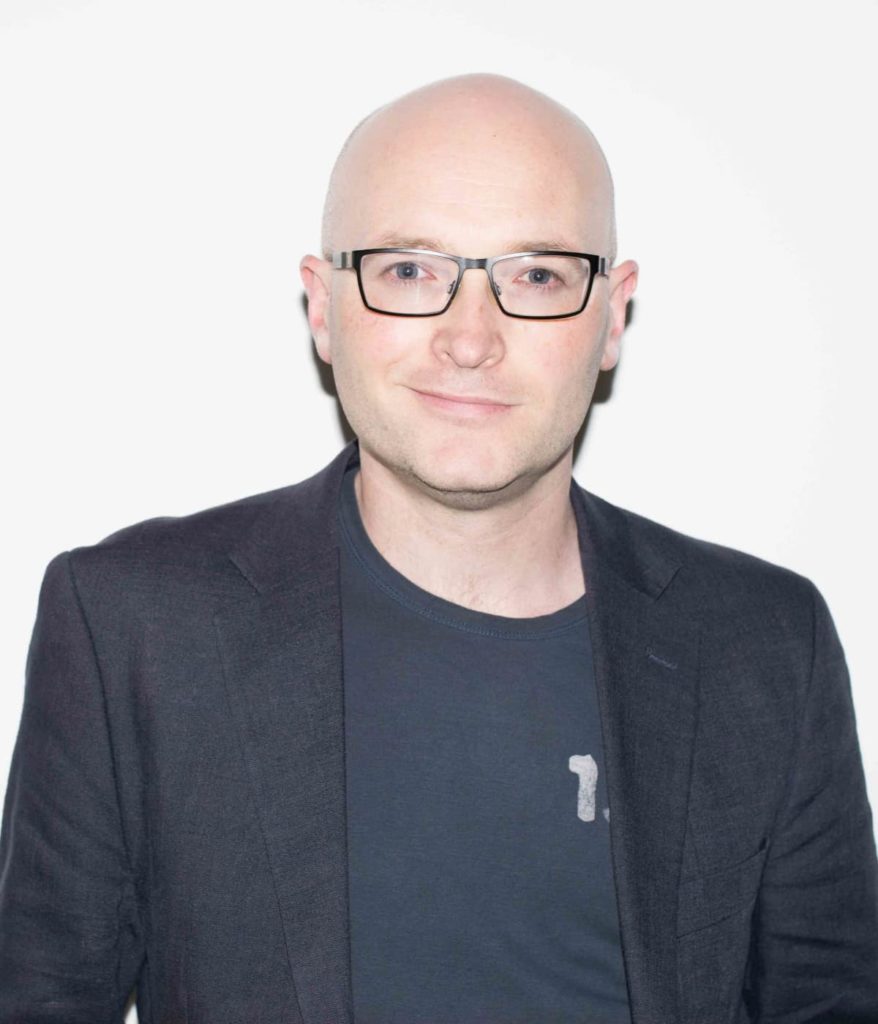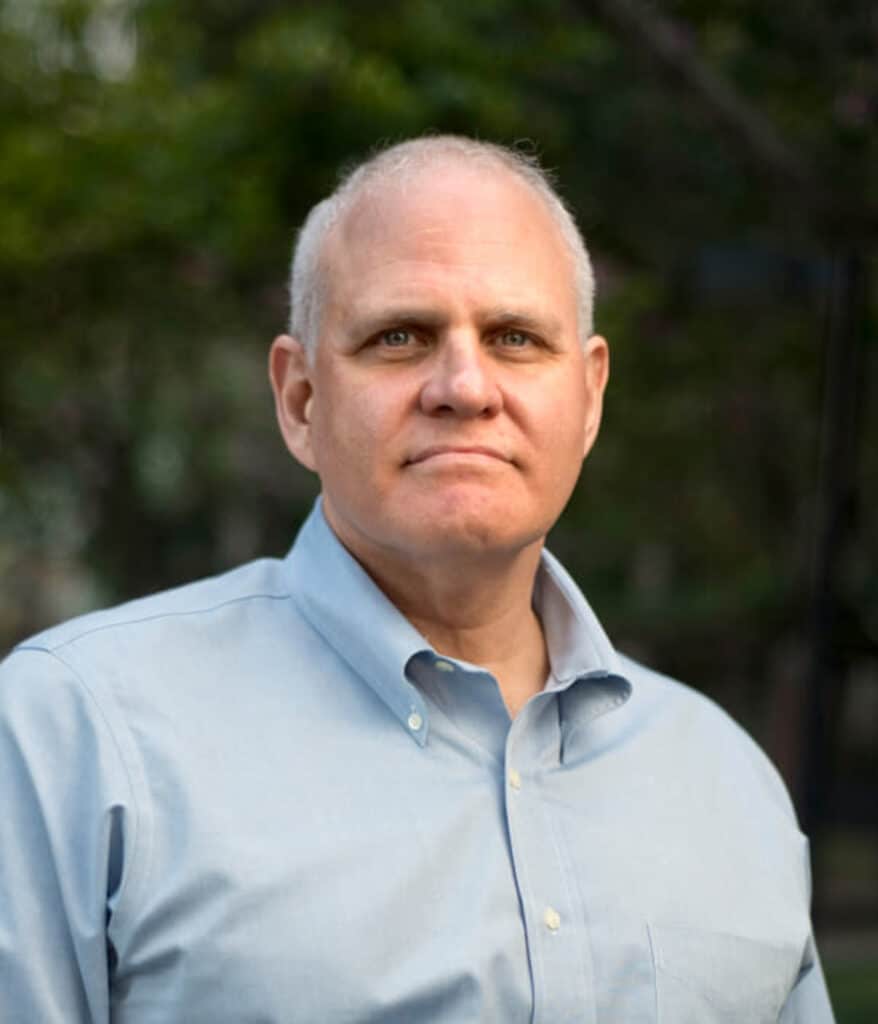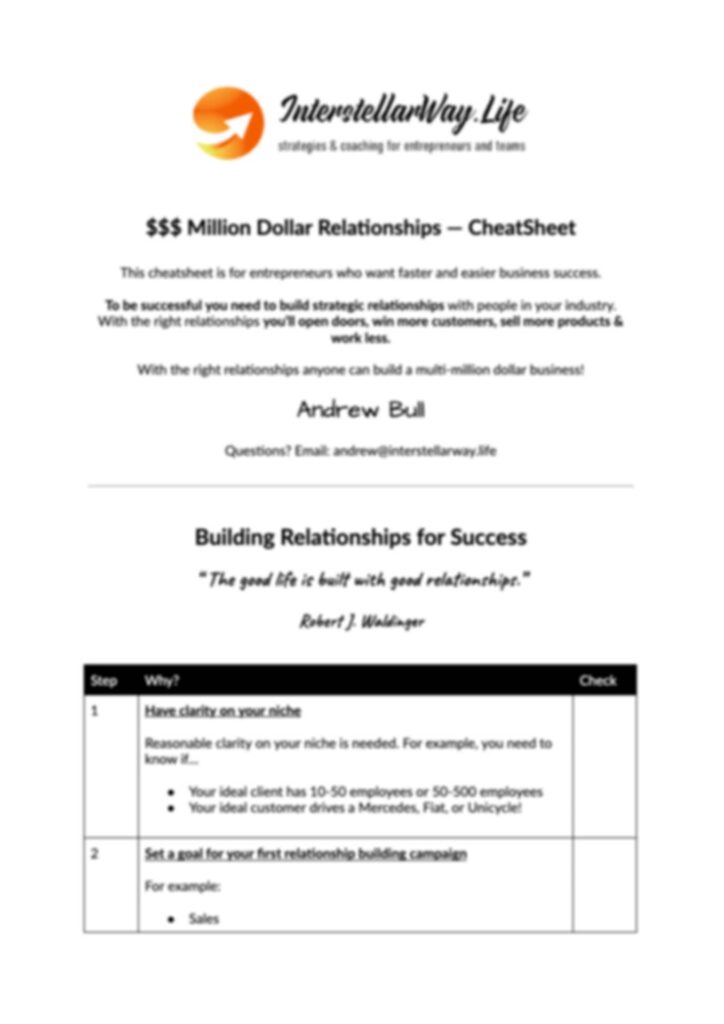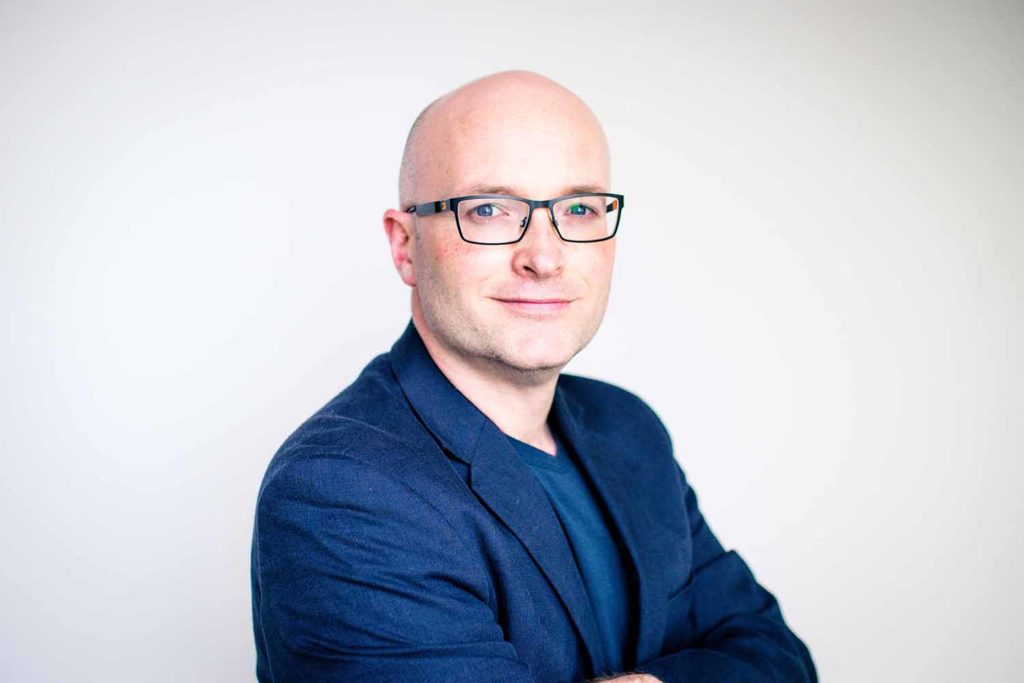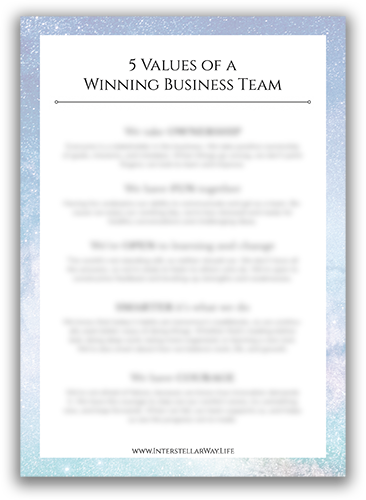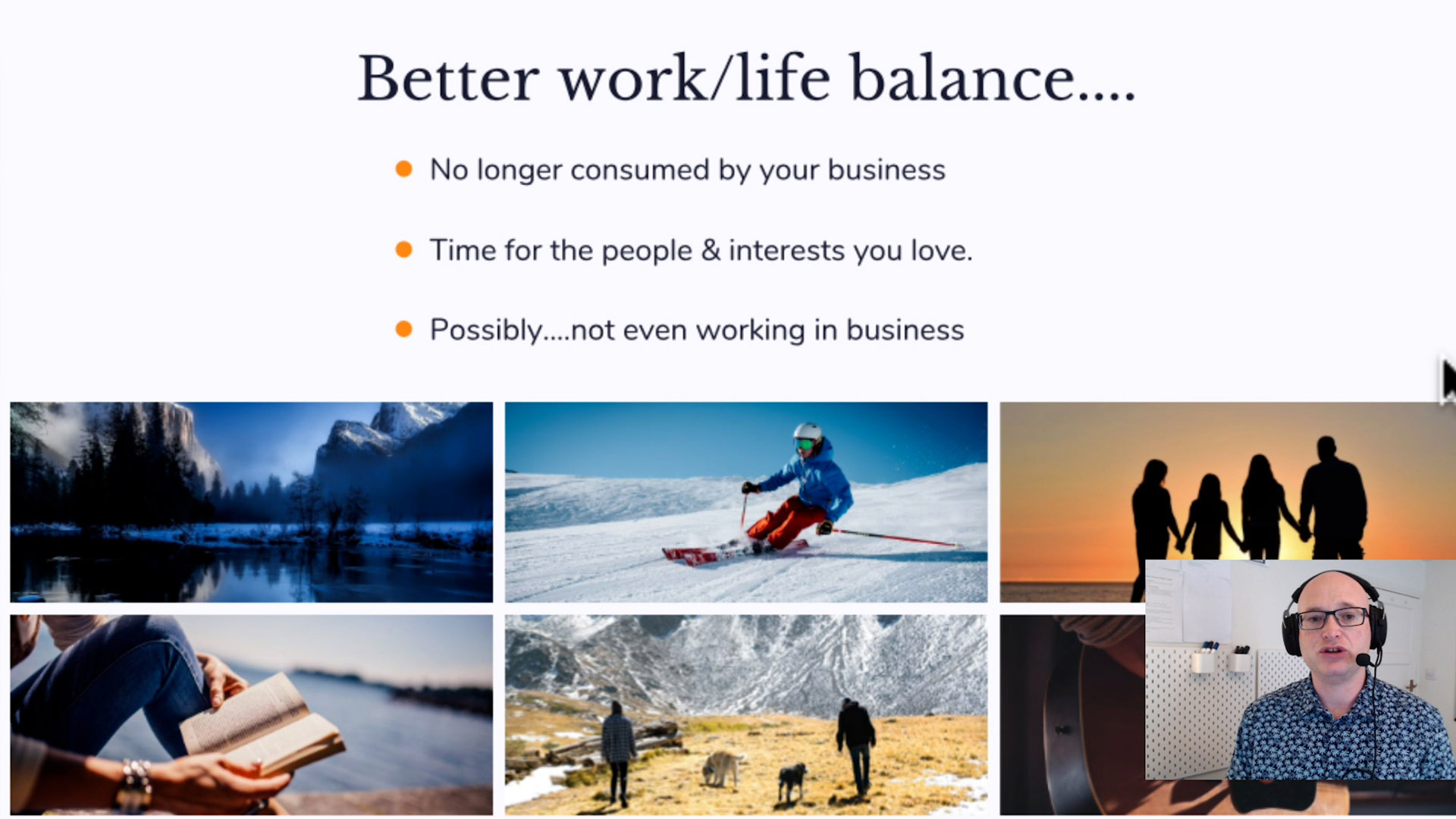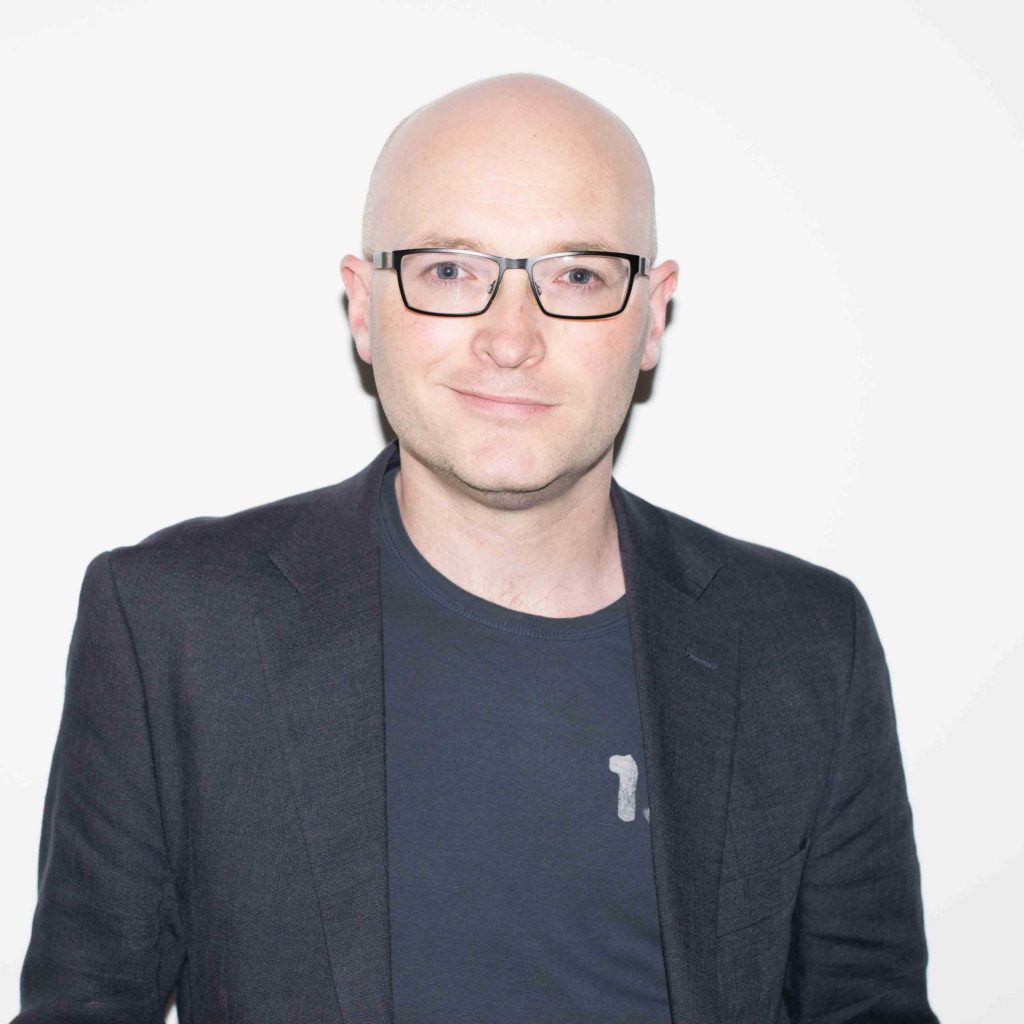Interstellar Business Show
Podcast for Technology CEOs and their teams.
It's time to grow your mind, elevate performance, and own your future 🚀
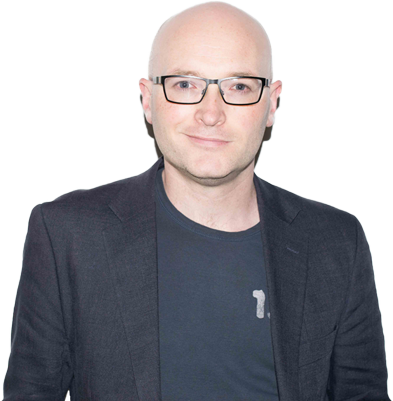
Interstellar Business Show
Episode: 0035
0035 - Matt Friedman on Metaverse and Human Slavery
Featuring....
Episode Introduction
You know that… The metaverse is coming.
It’s an exciting new way to meet, communicate, and do cool things. It might even be good for business.
You could use metaverse for: product and office tours, webinars and conferences, brainstorming sessions, team bonding.
However, the metaverse isn’t without its challenges. Challenges that affect society at large and your business.
One of those challenges is human slavery.
Because even though Human Slavery and the Metaverse seem to have nothing in common. They do.
Whatsmore, the way they collide could have a profound effect on your business and society.
In today’s show, Andrew is joined by Matt Friedman of the Mekong Club. Matt will share…
- How he learnt about Human Slavery
- How Metaverse and Human Slavery collide
- What business leaders can do to protect their company and society
- Actionable steps for facing up to this challenge
Please make sure you subscribe and follow us wherever you’re listening today, so you never miss an episode again.
Episode notes & resources
Connect with Matt Friedman:
Matt on LinkedIn: https://www.linkedin.com/in/matthew-friedman-9788555/
The Mekong Club — Matt’s organisation that fights against Modern Slavery
Love this podcast episode? Please leave a review here
Listen to more episodes here: Interstellar.Show
Get Andrew’s free Resources for Leaders with teams → https://bit.ly/2Ygyoij
Join Andrew’s Interstellar Community → https://interstellarway.life/sign-up-for-newsletter/
Transcript
Please note, this transcription is autogenerated, so there may be errors.
Andrew Bull: [00:00:00] Warning today’s episode is thought provoking, but also hard hitting and therefore not suitable for children. Typically, I like my podcast to be child friendly. So mom and dad business owners can listen to the show while their kids are in the back of the car. But today’s show talks about serious topics like human slavery, which are not at all suitable for children and especially young children.
So if you’ve got kids with you, now’s the time to skip to the next episode. Otherwise let’s press on. In today’s show, I’m joined by a guest. Who’s going to explain how human slavery touches large and small businesses, how the metaverse and human slavery are colliding and what you can do to protect other people all around the world and in your own backyard. And also what you can do to protect your [00:01:00] business.
Now, before we get started with today’s show and meet our guest, please make sure you subscribe and follow us wherever you are listening today. So you never miss an episode again.
Welcome to another episode of the inter Stella business show. Today I’m joined by Matt Friedman, who is the CEO of the Mekong club. Welcome to the show Matt.
Matt Friedman: Thanks for having me. I’m thrilled to be here.
Andrew Bull: So, yeah, this is a, this a slightly different episode, that we normally have on the Intertel business show, but it, it kind of, uh, ties in, well with a new direction. I want to take the show, which is about bigger ideas and bigger ideas, which have more of a purpose or more of a social, uh, angle on them.
And the Mekong Club, which Matt, the CEO is definitely that it’s an organization with a mission. What is that mission, Matt?
Matt Friedman: Well, the organization that I run, the Macon club works with the private sector in a positive, supportive way to help [00:02:00] them to understand what is human trafficking and modern slavery and what they need to do in order to protect their business. And also to ensure that it doesn’t exist so that can make the world a better place.
Andrew Bull: sounds like a great and noble mission. We’re gonna start the show by talking about how Matt got started, and we’re gonna do that in our first segment, which is called,
have courage.
Matt, how did you get involved in the world of modern slavery? And this challenge that is, is everywhere, right?
The other day, uh, there was a news story in the UK about a car wash near Bristol, where I think about 30 people ha had, uh, been got called up in modern slavery. So it’s everywhere. It’s not just a, a second or third world issue. It’s a first world first world issue. How did you first get exposed to the, this, this challenge?
Matt Friedman: Well, this happened about 30 years ago. I was living and working in Nepal. I was a public health officer working for the us government, U S a I D. [00:03:00] And my job was basically to translate resources into healthier people. What we were finding at that time were girls 12, 13 years old, who were HIV positive. Now, if you know anything about Nepal, it’s a very conservative culture.
We shouldn’t have had that disease among that age group. So we went to go interview them and heard pretty much the same story over and over again, human trafficker, a guy around 20 years old would go into a village flash, a bunch of money around and say, I’m looking for a wife. I don’t want an urban wife. I want a village wife.
He’d find a young girl. He’d basically, befriend her and then go to the family and say, you know, I’d like to marry your daughter. They’re thinking, wow, he’s rich. He’s handsome. Gonna take care of us. Take care of our daughter. Two days later, they have a wedding ceremony. Everyone’s there. After he goes to the family and says, I’m gonna take your daughter to the Capitol Katmandu, but I’ll be back in three months, but that’s not what’s going to happen.
Instead he takes her to Mumbai India, to the red light district where the brothels are. He puts her in a room and he says, honey, stay here. I’ll be back in a few minutes. [00:04:00] As she came in, she saw these people milling around. She says, no, no, no, no. You know, don’t leave me. I’m scared. Who are all these people?
Why are they like this? It’s okay. I’ll be right back. He then goes to the Madam to get the $500 for having sold her to the brothel. He has the gold from the wedding and he hands the wedding pictures over. He then goes back to Nepal to do this again. And again, maybe 40, 50 times in a year. The Madam then goes into the room where the girls and says, guess what?
Your husband just sold you to me. And you’re gonna be with 20 guys a day every day, cuz I say so you can imagine the shock. No, no, no. My husband loves me. No. That’s what happened. When she internalizes this, many of the girls say, I’ll kill myself before I do those shameful things. The Madame then takes out the picture of the family and says, is she your mom, your dad, your brother, if you hurt yourself, will hurt them.
So she’s trapped in this situation in order to make her into her prostitute. It’s quite simple. You shame her, you bring in a couple of professional rapists and over a, two three day period of time. They’ll take this 12 year old girl and rape her maybe 30 or 40 [00:05:00] times until eventually she just lays back and accepts whatever happens to her.
After that, she’s put on the line, she’ll be with 20 guys a day, every day until after a couple of years, she’s so burnt out physically, emotionally, spiritually, that nobody wants her. So they throw her out onto the street. So I was seeing this happen, in Nepal. I was seeing the girls that returned, but I didn’t understand the evil of it until I actually went to those brothels.
I was invited by the Indian government to do public health checks. I had a police officer with me, went into one of the brothels and there was an 11 year old trafficking victim. This girl saw this Caucasian guy saw an opportunity, literally ran up, wrapped herself around me and said, save me, save me.
They’re doing terrible things to. I looked down at this child who was hysterically crying. I turned to the police officer and said, we need to get this girl outta here. Said we can’t do that said, what are you talking about? You’re a cop. He says, if we try to leave with her, we’ll both be killed to make a long story short.
We left, we came back with a lot more police, but of course she was gone. Now I tell this [00:06:00] story, cuz I wasn’t one of those 15 year olds that said when I grew up, I want to be an activist. In fact, I did everything. I could not to be one. You know, I wanted to live the good life, but this was kind of a test in my life.
And I failed miserably. I should have gotten that girl out of there. I couldn’t eat, I couldn’t sleep. And I eventually did what a lot of activists do. I surrendered to the fact that now that I’ve been exposed to this, this is what I’m gonna do with my life. And 30 years later here, I am talking to you.
Andrew Bull: Wow, what a story it’s like, it’s taking me a moment to, uh, to take it all in and reflect on it really. And it’s interesting how you say, you know, you didn’t set out to, an activist, but you couldn’t avoid it. I suppose. Once it was, the situation was literally in your face like that, there was no, no walking away from it.
I, And, and the, the other day, I know you said on LinkedIn, so me and Matt are connected on LinkedIn and you put a post up, uh, about how [00:07:00] some people don’t want to hear about the harsh reality of these situations, which I, I can kind of get a, a bit of, but sometimes we really need to see the truth of situations to really understand how deep. These problems are for people as well. So thank you for sharing that story with us today.
let’s move on to the next segment of the show, which is called the big idea.
So we are carrying on, we’ve talking about modern slavery, but because this show traditionally has a bit of, uh, tech angle to it. Tech business angle, myself and Matt were discussing that it would be interesting to talk about the metaverse because this is the metaverse is this big idea right now, everyone, it’s the hot topic in technology, you know, Facebook invested billions into it. Lots of companies are getting on board with it, big consulting firms like earnest and young, and so on setting [00:08:00] up all these ways for companies to get started with it.
So Matt mentioned something really interesting to me. That modern slavery and metaverse are things that can coexist or metaverse can be a platform or a hotbed or something that insights modern slavery. Can you explain a bit more about that please? Matt?
Matt Friedman: Well, in the old days, you would have people going to traffickers would go to a shopping mall and find a young girl. And. Befriend her and say that I’m a modeling agent and I’m gonna give you a job. And then they’d eventually find a scenario that would take her away and then either drug her and force her into prostitution and so forth.
Then web 2.0 came and with social networking, you didn’t have to go to the mall in order to identify the girl. You could use social, uh, media, Facebook, or something else to present yourself as a 16, 17 year old boy, looking for a girlfriend, you identify a girl that is, uh, vulnerable, [00:09:00] misunderstood. Doesn’t have a lot of friends.
And then you basically entice her into a situation where she’s drawn away from her family. Maybe he will drug the, the, the girl and, uh, take compromising pictures and then get her into prostitution. Generally, this is done with a team. So you have a, a person who’s the age of the girl who’s in on it, but you’ll have a 55 year old guy with six laptops opened up, basically.
Using this, this grooming process in order to, uh, get a person to, uh, kind of enter into, uh, some type of a scenario, the metaverse has the potential to continue that process. Because as we know, the metaverse will allow all of us to be avatars. We’re not ourselves. We are cartoon like characters. We can be an animal, we can be a robot.
We can be a human being that looks like what we want that person to be like. And so there’s this anonymous. Scenario that exists there. So if you find the metaverse environments where young people are at, [00:10:00] and you start presenting yourself as a young person and you chat them up and you get to know them and you begin to kind of have a relationship with them and you schedule times to be in the same, metaverse over time.
The possibility of the same outcome exists. So basically the idea that we have is that, you know, the metaverse is it’s, the train is, is going down the track it’s gonna happen. They’re gonna invest billions and billions of dollars. As you say, it’s gonna result in all kinds of interesting new worlds that are gonna be out there.
but what needs to be done as part of this process is for us to ensure that there are safeguards built into this or else the, uh, metaverse is gonna be used as a means of recruiting people for this. It could be used for scams. It could be used for various other things. And we have to be aware of that right now.
Andrew Bull: Yeah. Yeah. I mean, like some of what you said really resonates with me because, um, my, my son is in infant school and they did a speech where a couple of ex policemen did [00:11:00] a training seminar, which talked about some of the things that you’ve just spoke about. This is seminars for parents about the things that we needed to look out for.
I, in terms of like computer games and things like this, which can be a.
Matt Friedman: Mm.
Andrew Bull: A way for, for these people to connect with kids or vulnerable people. So I suppose the metaverse is this similar thing. It’s, uh, it’s a way for PE for these bad actors to, to connect with vulnerable people in our society. And I suppose the, the, the beauty in some ways of things like the metaverse is that anyone can be who they.
Right. It gives us that freedom to reinvent ourselves. And, you know, I can be like a guy with, with a blonde Mohe if I want to be. But the, the flip side of that is not knowing who people really are when you’re talking to them.
Matt Friedman: You know, because of the, uh, the fact that we’re anonymous, uh, and because people often feel constrained in their own life. You have a scenario where, [00:12:00] um, some of the best traits that a person might have may come out, but on the other side of the spectrum, some of the worst traits can also come.
and, you know, for example, there was a, um, a reporter, uh, her name was Nina Patel. Uh, she went for Bloomberg’s onto the metaverse, uh, with a woman avatar and within a short period of time after kind of going through and seeing some things that were quite exciting. She eventually had some male avatars come up to her and they kind of surrounded her and they started to sexually harass her.
And then they. In a, in a virtual way, started to grope at her. And she felt as if she was being violated in the metaverse. So here it is, uh, the possibility of people entering into a world. Doesn’t really have any rules that are set, uh, up to address it. It’s kind of like the wild west. You enter the world and unless there’s some kind of training, unless there’s some kind of orientation, unless there’s some kind of implications of this behavior, the possibility of this being coming a problem is [00:13:00] going to, uh, great, uh, issues for these metaverse, uh, tech companies in the futue.
Andrew Bull: Yeah, and, and this isn’t necessarily something that’s restricted to the third or second world. It’s something that could have an impact in the, the first. As well, I reckon, I suppose, because probably more affluent children or vulnerable people will be the ones who are the first adopters of this virtual metaverse technology.
Matt Friedman: In, in the United States, for example, a lot of the girls that are recruited for sex trafficking are middle class. Girls are above, you know, not all of them are from socioeconomic conditions that are, um, you know, low.
It it’s partly because people want things to be real. And hopes brings eternal. And so you have a situation where, uh, a person has this boy, who’s kind of hitting on them, but doing it in such a respectful way and honoring her privacy and, and really being encouraging and saying all the things that that person needs in their [00:14:00] life.
And perhaps they don’t have that in their family situation among their friends. And so they desperately want this to be. And to the extent where all of the safeguards that they have go away. And that’s why, uh, as you say, this is probably a first world problem initially, because those are gonna be the people who are going to be investing in the headsets, in the technologies to allow for people to enter into this space.
Andrew Bull: So can we rely on people like Facebook or maybe let let’s not just put all the weight on Facebook. Let’s say big tech companies. Can we rely on big tech companies to put the safeguards in place that are going to help protect. Vulnerable people, or do you think other people need to be pushing, pushing more of an agenda in terms of building out these things in a more secure way?
Matt Friedman: Let me just start by saying that I want this to be successful. I want these companies to be able to come up with something that is going [00:15:00] to be worthwhile and wholesome and full of adventure and so forth. Um, you know, based on what some of these companies have gone through with the algorithms that is sending messages in different directions.
I think that they have been hypersensitized to the fact that they have to be concerned about social issues. And, uh, making sure that they address safeguards. And in some of these platforms, they have like a safety button where a bubble will go over you. And so you’re basically protected from whatever’s happening around you.
They may have a, a mechanism that jettisons you to a completely different world or to a safe space. There may be some type of button that will allow for security people who are on the network to come in. I suspect those things will be happening, but generally they get so caught up in the tech in order to make it cool and exciting that those things are probably lower on the list.
What we’re saying is that. We wanna step up and help. We want to be there to say, [00:16:00] what about this? What about that? Have you thought about this particular aspect in order to kind of hold them to be accountable as they go through with this process? So we’re not there to wag our finger and say, you guys are bad and evil and doing wrong things.
We’re saying if you’re gonna do this, just do it in such a way that people can sit at the table who have been exposed to these types of things that understand the criminal mind that understand that people will basically, come up with ways of, of scamming others. This is what we think you should consider.
Can you use your technology in order to put it in place.
Andrew Bull: Yeah. Well, I think that just sounds so smart and, and sensible and. I think the, there are things that can be put in place that don’t have to stop the whole thing being successful. I mean, today, someone hit me up on LinkedIn and I knew within like one or two messages that they were going into a scam [00:17:00] type pitch, uh, to sell me some investing for. Bitcoin or whatever. And you could just tell, so I’m sure eventually, you know, they’ll be out to monitor conversations and from the pattern of those conversations, probably start flagging up when things are looking a bit dubious. So I think there are things that, that, that can be done, uh, to protect people who are a bit vulnerable and, you know, naive and not, and maybe more open to going down.
Those bad ways because of bad actors. So I think that, that that’s great. Um, what, what are you doing right now to have those conversations with these tech companies? Are, are you, are you in any conversations or you’re trying to get these conversations going with them?
Matt Friedman: Well, this all started by a letter to the editor for south China morning post. And then, uh, they approached me and said, are you interested in writing a longer article, a long form article 2,500 words. So I [00:18:00] wrote the article, it was put in, uh, The Sunday magazine and all of a sudden, uh, two days later you saw this article reappearing in 25, 30, 40 different newspapers.
And it’s partly because there is an interest in the metaverse, there’s a curiosity associated with it. And the idea of linking human trafficking to the metaverse is of interest to people. So we’ve approached, uh, Microsoft and Facebook and Google, and basically said, um, we. An organization that specializes on human trafficking, but we also look at human rights.
We, use your platforms. We respect the fact that you are moving into this new frontier. And, uh, if there is any, uh, desire for, uh, somebody to come and participate in the process who wants this to be successful, but to ensure that some safeguards are put in place as part of that, We’re willing and able to, to play that role.
Um, these have been sent out to a number of people. [00:19:00] We haven’t heard anything back yet. Maybe we will, maybe we won’t, but you know, when an NGO. Basically approaches a private company, uh, in this way. And if they don’t really have referrals for them, it’s just this random person kind of like Facebook, you don’t know who the person is, that’s approaching you until, you know?
And so, um, eventually I think it will take, uh, we have worked with some of these companies in the past because they’ve faced, uh, newspaper articles and. Television, uh, articles that basically have called them out for the fact that their platforms are being used in dubious ways. So they recognize that they need to address this.
And I do feel that these organizations do care about these topics. They don’t want to be in a situation with this. Uh, basically turns people off from this, this great, uh, journey that they. And so, you know, our approach will be to continue to just say over and over again, we’re here, we’re [00:20:00] available, you know, test us out, give us an opportunity to just work with you.
And if it doesn’t work out, then we’ll go away. But, uh, let us be a part of this process so that you get it right.
Andrew Bull: Yeah, well, I hope I hope they are open and, and let you be a part of the process. What can smaller tech companies do? Let’s say, uh, I’m the leader of a company with maybe 10 or 30 employees. Maybe I might be thinking. Do you know, this is really, uh, issue that huge companies have to deal with, or we, we, what can we do to like affect anything? Is there anything these smaller companies can do or any positive steps they can take?
Matt Friedman: I almost feel like it’s gonna be the smaller companies that have the most innovative ideas. So look at the metaverses this huge, enormous, platform that requires a tremendous amount of input from the big boys and girls, you know, the big companies that are out there, they’re focusing on just making sure it doesn’t crash and all kinds of [00:21:00] things when it comes to the technicalities and the refinements kind of like apps are on our phone where, you know, smaller companies develop an application, you know, that does something.
That the big companies don’t really have time to do. I think that’s, what’s gonna happen with this as well. When it comes to ESG, when it comes to kind of, uh, basically finding ways of protecting people or educating people, or perhaps even using the metaverse for more educational purposes, which we’re already seeing happen.
You know, the other concern that we have is that. Children find their way onto the metaverse, , because they can present themselves as an adult that also poses some challenges and some real potential dangers for children, because they would be faced with, you know, very mature types of thing in a very short period of time.
How do you basically ensure that that doesn’t happen, you know, either because the person signs themselves up as being over 18 [00:22:00] or they just find a way of using somebody else’s avatar to go on. And so there there’s a million of these questions that have to be addressed. And, you know, I find that it’s not just even people like me that focus on human rights and human trafficking.
We need poets and we need artists and we need musicians and we need, we need a variety of different types of thinkers to be a part of the process, not just for the creative side, which will, they’ll be a part of, but from the standpoint of how do we in a, in a non, uh, destructive, uh, way, influence putting safeties in place that still make it fun and not overly constrained with rules and regulations.
I don’t know what that balance is, and I’m not sure how that is done, but I know that that’s the direction we’re gonna need to go.
Andrew Bull: Yeah, it’s something we need to fight for. Right. It’s not going to be easy to get that balance. But I think it’s great that you come from a, from an approach of trying to protect the creative freedom stuff, but [00:23:00] obviously trying to add the sensible protections, uh, in there as well. And yeah, I think that’s something we all need to fight for, uh, both for our sake and our kids’ sake as well, I suppose, in terms of what they’re, what they’re doing, cuz right now my son is, safe because he’s U his exposure is an Amazon fire tablet. Right, which is specifically kitty friendly. So it’s very closed universe, but when he is a bit older, you know, I want him, I want things to be done in a sense, once he gets out there a bit more things need to be done in a bit more of a sensible way. Uh, and I hope I hope they will be done. What are some easy first steps that any business leader can take regarding modern slavery, perhaps to think about the impact of their business upon modern slavery.
What are, what are some easy first steps that people could do maybe in an hour or two?
Matt Friedman: Yeah. First step is, uh, is kind of a 1 0 1 presentation on what is human trafficking? How [00:24:00] does it work? How does it relate to the private sector? How does it relate specifically to their sector? What are other organizations are doing? What should they be doing and kind of, what is legislation forcing them to do?
There’s a lot of legislation out of the UK, the United States, Germany, Australia. Which is called transparency legislation that forces big companies to put on their website. What they’re doing to address modern slavery. you know, and that is there to allow consumers and investors to have a general sense of are they doing right by the world related to this particular topic?
And so whether they like it or not going, uh, willingly or kicking and screaming, it’s just a matter of time before the private sector gets completely immersed in this particular topic, C-suite needs to understand it. There need to be policies in place. There need to be focal people within the organization to address this.
They need risk assessment mechanisms to. This, from the banking perspective, the retailer perspective, the hospitality perspective, they need to have kind of [00:25:00] auditing and monitoring approaches and they need to know what to do if they find this. And so what we do as part of the work that we do is we’re a one stop shop for basically helping the private sector, whether you’re tech, whether you’re construction, whether you’re, you know, um, any of these other sectors that I mentioned to understand what they need to.
What they need to put in place in order to protect their business. And by doing that, they protect the world as well.
Andrew Bull: Okay. I think that’s some great first steps for people to take. And where can people reach you? What’s your website?
Matt Friedman: the mekongclub.org, on our website have a lot of basic information about what is human trafficking, the relationship with the private sector, we have about 35 tools, about 20 of them are available to the private organizations. We have a lot of videos and e-learning, kind of things that are available to people.
So as a non-government organization, our approach is basically to create the awareness and then to help them in their journey. In [00:26:00] addressing modern slavery to get to where they need to be. And by us achieving that, then basically as I say, we, we make the world a better place. And the other thing I’ll just say is that, you know, there are some organizations that feel like the only way you can get the private sector to do things is to, you know, name and shame them.
We don’t believe in that philosophy. We believe in helping them through constructive, you know, uh, contributions to, to what it is that they need to do within their organization. As a result of that, we feel like this is going to be much more effective approach.
Andrew Bull: Yeah. I, I, I agree. I think From a motivational standpoint, every time you force someone to do something, it’s actually a demotivator if you can actually connect people with the values and the mission and inspire them to want to get involved, it’s much more likely to stick, and get everyone involved for it as well.
Let’s move onto our next segment of the show, which is called
own your future.
So. I think there’s a [00:27:00] lot going on right now in the world. Tech technology wise, uh, geopolitical situation is evolving. I think food is going to become much more of a challenge, for people. We’ve got diverse, uh, diversification of ages in the UK.
Now there’s more people over 65 than under 15. So I think we’re at this, this crossroads or this big flux or changing point right now where a lot of things could really drastically change in, in the next few decades to come in the 20, 30, 50 years. How do you, how do you think modern slavery is going to play out in the next 50 years?
Matt, what do you think is going to happen?
Matt Friedman: First give you some insight into the success that we’ve been having. There’s 40 million people estimated to be in modern slavery around the world. Uh, 9.2 million people enter per year, 25,000 per day. And last year, the world with all of the organizations like mine, the United nations [00:28:00] and the government.
Helped only 108,000 people. That’s 0.2% out of a half million criminals. We put about 9,000 in jail, which is zero point, uh, 8%. So, you know, we’re not winning the game. And part of the reason for this, the profits generated are so. Extreme 150 billion a year. The amount of money that we have to fight, it is about 350 million, which is 0.2%.
Um, and, uh, you know, there’s a half million greed, incentivized criminals, and about 20,000 people like us. So you might think from that, that, uh, basically, uh, it doesn’t sound like a very rosy future. But I’m an optimist. I, I feel like as more people come to know about this issue of human trafficking, forced prostitution, forced labor, as more people begin to feel it and experience it.
Eventually there will be more discussion on this. This will result in more pressure on governments and encouragement within the corporate sector and more [00:29:00] involvement. So like anything else, all of those other issues that you mentioned, my personal feeling is, is. Governments and NGOs in the United nations and corporations.
Aren’t. The general public has to care whether it’s global warming or poverty or dis uh, disparity or human trafficking, we have to figure out what our cause is, and then take steps in order to be a part of the process. And so my reason for kind of going in doing, daily LinkedIn posts or, you know, the, the study tours that I do to sensitize people or all the talks that I do, or these podcasts is to just give people a sense of this particular topic.
And I think if, once you know about this, you start talking to other people and you start doing things. And I often say to my honest is if I can get you to do one thing, you know, and 10 million people did one thing, it would add up to something quite big. So I think if we. Get a critical mass of people understanding this, give them a call to action and what they can [00:30:00] actually do to be a part of the solution and do this in a mass way.
Things can change for sure. There in India, there was a rape case that became sensationalized. This resulted in the entire country. Standing up protesting, changing laws. It happened because it went viral. I don’t know what the ingredient is to bring about that change, but that’s what we need. We need people to understand that a 15 year old girl should not be commercially raped 7,000 times only to eventually get a disease and die, or a person forced onto a fishing boat where they lose eight years of their life.
Basically don’t get anything. And by the time they get off the boat, they are completely physically depleted. And this happens over and over and over. It’s unacceptable in 2022, it’s just unacceptable. It has to change. And that’s, that’s why people like me do what we do.
Andrew Bull: Wow. That’s. Very powerful and yeah, it’s, it’s all around us. Unfortunately. Like I think even now, probably within a few miles of my home, there’s probably someone who’s,[00:31:00]
Matt Friedman: It definitely
Andrew Bull: modern slavery. Yeah. Which is kind of scary to, to think about really. Um, alright.
Let’s move forward into the last segment of the show, which is called
take action.
So we’ve given people, some big ideas and a lot of food for thought today, but what’s the one thing that you’d like leaders to remember about, uh, what you’ve shared with us today, Matt.
Matt Friedman: I would challenge people to spend three hours of their life, really exploring the issue of human trafficking, watching some videos, listening to podcasts on this, uh, identifying if you’re a government person or if you’re a private sector person, or if you’re at a university or whatever. Based on that three hours, what is it that you could do to apply your trade, your skill, your experience, to making a difference?
That would be my basic, uh, ask as part of this three, three hours of your life, but they, you know, and if anyone has any [00:32:00] questions about what that is, I’m happy to give them, uh, what the three hours could be for them to walk away with a general understanding of this. And this goes back to the comment that you made earlier about people feeling like it’s too.
Yeah, it is sad. There’s no way you can sugarcoat it. It is a terrible thing, but if we don’t feel this, if we don’t expose ourselves to this, if we don’t allow ourselves to kind of experience a little bit of this, we’re not gonna care. And until we begin to care, we’re not gonna do anything. So it’s really important for people to just take this challenge.
And that’s what I’m calling it. A challenge. Give yourself three hours. And then as you’re going through that process, think about how can I apply what I have in my heart, in my skills and experiences and abilities and networks. How do I apply that to, to helping? And if you can’t come up with something.
Let me know, and I’ll give you the, the things you need. We wrote a book, be the hero, be the change that basically talks about this. Another book, uh, where were you a profile of modern slavery, both books [00:33:00] basically give you everything you need in order to step up and be a part of this solution.
Andrew Bull: So powerful and yeah, right. That, that, there’s something that all of us can do to, to, to help and, and rise up and meet this challenge. Um, can you just give out your website address one more time so people can get in contact with you.
Matt Friedman: The mekongclub.org. I we’re on Facebook and, uh, uh, LinkedIn and all of the other major social network, uh, platforms I post on this, uh, probably three or four times a week, , with stories and solutions and suggestions and so forth. And again, we do that, to, to basically just highlight the relevance and the importance of this issue.
Uh, and I’ll do that for a year. I committed myself to doing one post every day. I’m about 160 days into it. That’s, uh, 520 words a day that I have to come up, with somewhat of a challenge, but I think I’ll be able to get through it.
Andrew Bull: Wow. That is, that is a challenge, but I’m [00:34:00] glad you are sticking to it, cuz I think it’s going to make a world of difference to getting your, your story out there as well. So thanks for coming on the show today, Matt and sharing everything that you have with us.
Matt Friedman: Thank you for the opportunity. I appreciate it.
Andrew Bull: My thanks to Matt Friedman for sharing his experiences and expertise with us today, I was deeply moved by the stories that Matt shared, and I’m sure you are too. I’m convinced that all leaders can play their part in making the world a better and safer place for. Because nobody should have to live their life as a slave.
Nobody should have to live without things like dignity, respect, and freedom. Nobody should have to live a life of subjugation and misery. Together, we can all play our part in keeping everyone safe, everywhere. And the everywhere part is important because human slavery, isn’t just limited to third and [00:35:00] second world countries.
It can happen in any country. It can happen in your country, your city, your supply chain. So I’m thankful to Matt for increasing my awareness of human slavery, and I’ll be doing my best to remain aware and proactive on this important issue. And I’m convinced that business leaders like you must do the same too.
So be sure to check out the organization that Matt leads, you can check it out at the mekongclub.org.
And I’m just gonna wrap up by saying if you haven’t already done so hit that subscribe or follow button wherever you are listening today. All I’ve got left to say is thanks for being here. Have courage own your future. Take action.

